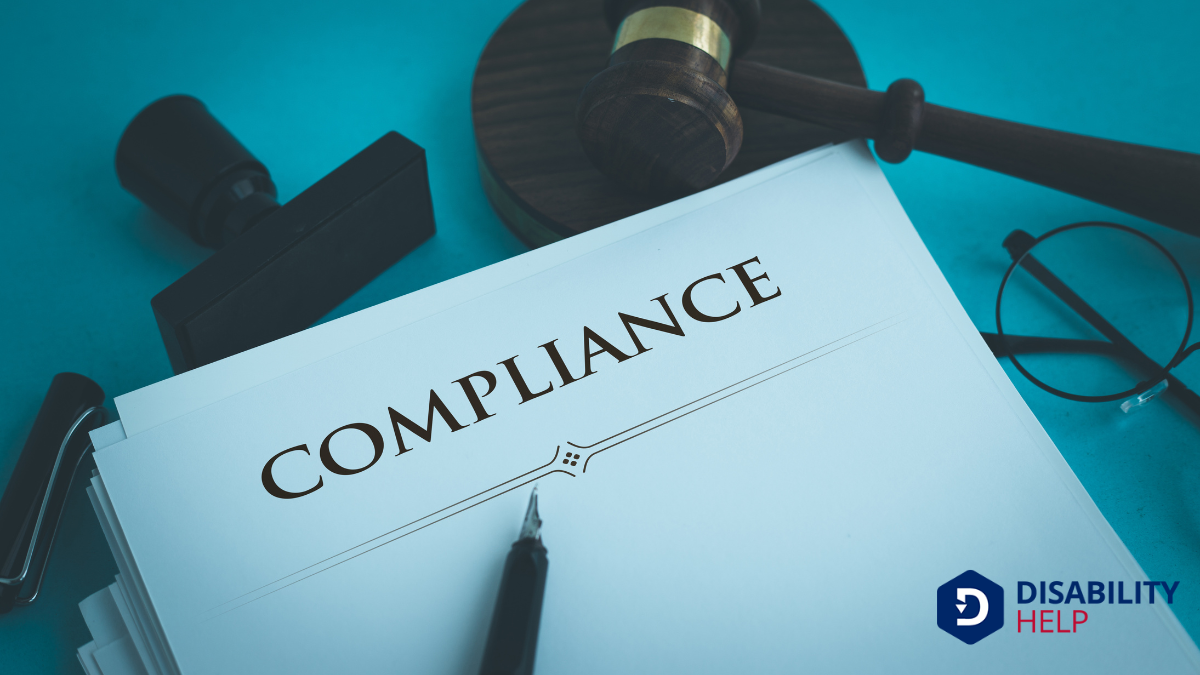Steering through Washington's workers' comp system can seem intimidating, but it's essential for ensuring your protection after a workplace injury. With no need to prove fault, you'll find this system is designed to support you with financial and medical benefits. By understanding the filing process and knowing your rights, you'll be better prepared to tackle any challenges. Curious about how to make the most of your benefits and avoid common pitfalls?
Key Takeaways
- Workers' compensation provides financial and medical benefits for job-related injuries without needing to prove fault or negligenceA legal concept where a party fails to exercise reasonable care, resulting in harm to another person....
- Employees must report injuries immediately and provide medical documentation to be eligible for benefits.
- The system is managed by the Department of Labor & Industries and funded by employers, ensuring no cost to employees.
- Benefits include medical care, wage replacement, and rehabilitationThe process of helping individuals with disabilities achieve and maintain their optimal physical, se... services for injured workers.
- Employers must maintain insurance coverage and adhere to reporting and record-keeping requirements to comply with legal obligations.
Overview of Washington's Workers' Compensation System
In Washington, the workers' compensation system is designed to protect employees by providing financial and medical benefits if they're injured on the job. This system guarantees you receive necessary support without the need to prove fault or negligence, streamlining the process for everyone involved.
Managed by the Department of Labor & Industries, it covers most work-related injuries and illnesses.
You’ll find that the system aims to guarantee prompt medical attention and income replacement, so you can focus on recovery. Employers pay into the system, making it a no-cost benefit for employees.
This structure encourages workplace safetyThe policies and practices in place to ensure the physical and mental well-being of all employees, i..., as both parties have a vested interest in preventing injuries. Understanding how this system works is essential for traversing your rights and responsibilities effectively.
Eligibility Criteria for Workers' Comp Benefits

To qualify for workers' comp benefits in Washington, you must meet specific employee injury requirements.
Your employer also needs to have the proper coverage in place to guarantee you're protected.
Understanding these criteria is essential to accessing the benefits you're entitled to.
Employee Injury Requirements
When you’re looking at workers' comp benefits in Washington, understanding the eligibility criteria is crucial. You need to know if your injury qualifies for benefits. Here’s a quick breakdown:
- Work-related InjuryAn injury that occurs in the course of employment, potentially leading to temporary or permanent dis...: Your injury must occur during the course of your employment. It doesn't matter if the incident was sudden or developed over time.
- Medical Documentation: You need a healthcare provider to document your injury and provide evidence that it’s work-related.
- Timely Reporting: You should report your injury to your employer as soon as possible. Delays might affect your claim.
- Employment Status: You must be an employee, not an independent contractor, to be eligible for benefits.
Understanding these requirements can help guarantee you’re prepared when seeking workers' comp benefits.
Employer Coverage Obligations
Although maneuvering workers' comp can be complex, it's vital for employers in Washington to understand their coverage obligations. If you've got at least one employee, you're generally required to provide workers' comp insurance. This guarantees that employees injured on the job receive necessary medical care and wage replacement.
Washington mandates coverage through the state-run fund, unlike other states that allow private insurers. Your role includes accurately reporting employee hours and wages to avoid penalties. Don't forget to post required notices about workers' comp rights in an accessible location for all employees.
It's important to respond promptly to workplace injuries and file claims swiftly to guarantee employees receive timely benefits. Understanding these obligations helps protect both you and your employees effectively.
Filing a Workers' Compensation Claim
If you meet the eligibility criteria, it's vital to understand the steps involved in filing a workers' compensation claim in Washington.
First, report your injury to your employer as soon as possible to start the process.
Then, follow the specific filing procedures to guarantee your claim is processed smoothly and efficiently.
Eligibility Criteria Overview
To determine your eligibility for filing a workers' compensation claim in Washington, it's crucial to understand the specific criteria set by the state.
As an employee, you must meet these requirements to qualify:
- Employment Status: You must be an employee, not an independent contractor, as defined by Washington state law.
- Work-Related Injury or Illness: Your condition should directly result from your job duties or occur while performing work-related tasks.
- Timeliness: Report your injury or illness promptly, as delays can affect your eligibility.
- Employer Coverage: Your employer must have workers' compensation insurance coverage, either through the state fund or as a self-insured entity.
Understanding these criteria helps guarantee you’re eligible when you need to file a claim.
Filing Process Steps
Having a clear understanding of the eligibility criteria is the first step, but knowing how to file a workers' compensation claim in Washington is equally important.
First, report your injury or illness to your employer immediately. Timely reporting is vital. Next, seek medical attention and inform your healthcare provider that it's a work-related issue. They'll complete a Report of Accident form, which gets sent to the Department of Labor & Industries (L&I).
After that, L&I will review your claim. You’ll receive a decision regarding acceptance or denial. Be certain you keep all documentation and follow up promptly with any additional information L&I requests.
Staying organized and proactive guarantees that you navigate the process smoothly and efficiently.
Understanding Workers' Compensation Benefits
Steering through the world of workers' compensation benefits can feel overwhelming, but understanding the basics is essential for any employee.
In Washington, these benefits provide support when you're injured or get sick due to your job. Here's a breakdown of what you might receive:
- Medical Benefits: Covers necessary treatments, hospital visits, and medications to help you recover.
- Wage Replacement: Offers a portion of your regular income if you're unable to work temporarily.
- Permanent Disability Compensation: Provides financial support if your injury leads to long-term impairmentA loss or abnormality of a body structure or function, whether physical, mental, or sensory, often a....
- Vocational RehabilitationServices that help individuals with disabilities prepare for, obtain, and maintain employment.: Assists with retraining or education if you need to change careers due to your injury.
Grasping these benefits guarantees you're prepared to navigate your rights and recover without unnecessary stress.
The Role of Employers in Workers' Compensation

Understanding your benefits is a significant part of workers' compensation, but it's equally important to know what role your employer plays in this process.
Your employer's primary responsibility is to guarantee a safe workplace to prevent injuries. If an injury occurs, they're required to report it promptly to the state's Department of Labor & Industries. This step is vital because it kicks off your claim process.
Employers also need to provide you with the necessary workers' compensation forms and information. They must cooperate with insurance providers and facilitate communication between you and medical professionals.
Your employer's involvement guarantees that your claim is processed smoothly, allowing you to focus on recovery. Understanding their role helps you navigate the workers' comp system more effectively.
Dispute Resolution and Appeals Process
When disagreements arise over a workers' compensation claim, knowing how to navigate the dispute resolution and appeals process is essential.
First, you should communicate with the claims manager to clarify any misunderstandings. If issues persist, you can request mediation. This involves a neutral third party helping both sides reach an agreement.
If mediation doesn't resolve the problem, you can file a formal appeal with the Board of Industrial Insurance Appeals (BIIA). Here’s how you can proceed:
- File an appeal: Submit your appeal within 60 days of the decision.
- Prepare for a hearing: Gather evidence and witness testimonies.
- Attend the hearing: Present your case to an industrial appeals judge.
- Await the decision: The judge will issue a written decision after reviewing everything.
Understanding these steps can help you effectively manage disputes.
Common Challenges and Mistakes in Workers' Comp Claims
Maneuvering the dispute resolution and appeals process is just one part of the workers' compensation journey.
You'll face common challenges and potential mistakes that can impact your claim. One major mistake isn't reporting your injury promptly. Delays can lead to questions about the injury's origin or even a denial.
Another pitfall is failing to seek medical attention immediately or not following the prescribed treatment planA detailed plan developed by healthcare professionals to treat a specific health condition, outlinin..., which can weaken your case.
Additionally, make sure that all paperwork is accurate and complete; missing details might cause delays or rejections.
Misunderstanding your rights and benefits is also a common issue. It’s crucial to educate yourself and possibly seek professional guidance to navigate the complexities of the workers' comp landscape effectively.
Compliance and Legal Obligations for Employers

Although traversing the workers' compensation system can be intimidating for employees, employers in Washington also have specific compliance and legal obligations they must meet.
To navigate this effectively, you need to:
- Purchase Coverage: Secure workers' compensation insurance through the state fund or become a certified self-insurer.
- Post Notices: Display the required workers' comp information prominently at your workplace.
- Report Injuries Promptly: File a report with the Department of Labor & Industries within five days of notice of an employee's injury.
- Maintain Records: Keep detailed records of workplace injuries and claims for at least three years.
Resources and Support for Employees and Employers
While employers have their share of responsibilities, both employees and employers in Washington can access numerous resources and support to navigate the workers' compensation landscape more smoothly.
You can start by visiting the Washington State Department of Labor & Industries (L&I) website, which offers thorough guidance on filing claims, understanding benefits, and accessing vocational services. They provide training and workshops to help you understand your rights and responsibilities.
For personalized assistance, consider contacting the L&I customer service line. Employers can benefit from the Employer Assistance Program, which offers advice on managing claims and maintaining compliance.
Additionally, seeking advice from workers' compensation attorneys or consultants can provide further insight and guarantee that you make informed decisions throughout the process.
Conclusion
In Washington, understanding workers' compensation is essential for managing workplace injuries. You're entitled to benefits without proving fault, but it's important to report injuries quickly and file claims with proper documentation. Employers play a key role by funding the system and ensuring compliance. While challenges may arise, knowing the process helps you secure the benefits you deserve. Resources and support are available to guide both employees and employers through disputes and legal obligations, ensuring a smoother recovery journey.






